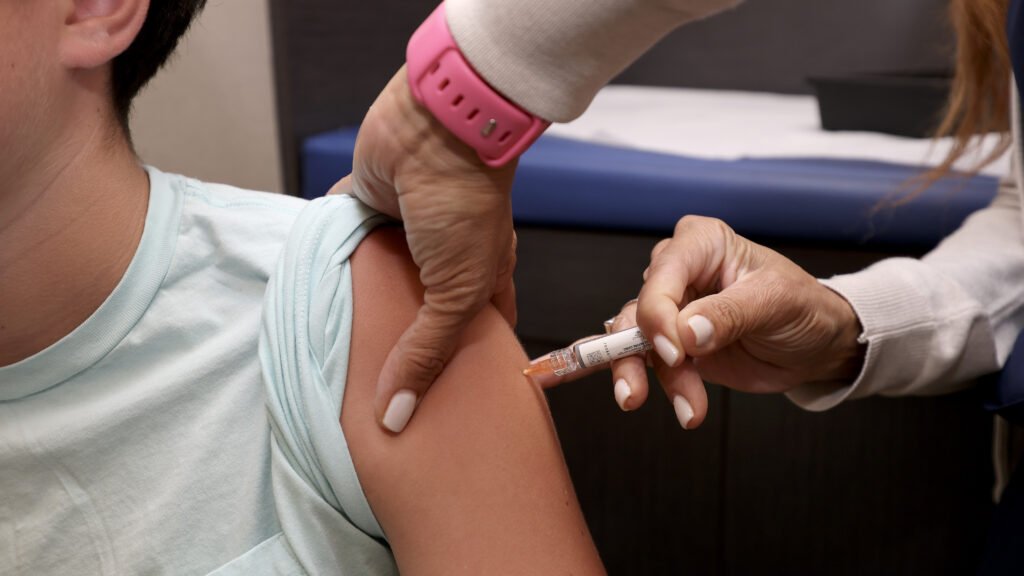Two weeks after a federal committee of vaccine advisers approved new recommendations for who should receive Covid-19 shots, the Health and Human Services Secretary Robert F. Kennedy Jr. and his deputy have yet to sign off on the updated guidelines. This delay is causing a ripple effect, particularly impacting the Vaccines for Children (VFC) program, which provides free or low-cost vaccines to low-income children.
Sources within the immunization program have expressed concern over the lack of approval from top health officials, as it has prevented the shipment of updated Covid shots for children who rely on the VFC program. Approximately 50% of children in the United States are eligible for this program, but without the necessary approval, they are unable to access the free vaccines. On the other hand, children with private insurance can still receive the vaccine as recommended by their healthcare providers, with insurers agreeing to cover the cost until 2026.
The delay in approval not only affects the availability of vaccines for low-income children but also creates confusion and disparities in vaccine access. Once the recommendations are approved, there may be additional delays in shipping the vaccines to states, further prolonging the process of getting children vaccinated. Despite the urgency of the situation, there has been no response from Sanofi, which supports Pfizer in manufacturing the Covid-19 shot, or Moderna regarding their timeline for shipping vaccines.
The Centers for Disease Control and Prevention (CDC), which would typically sign off on recommendations by the Advisory Committee on Immunization Practices, is currently without a permanent director. Acting director Jim O’Neill and Health and Human Services Secretary Robert F. Kennedy Jr. have not approved the recommendations, leading to frustration among healthcare professionals and advocates for children’s health.
The delay in adopting Covid-19 vaccine recommendations has raised concerns about the health and well-being of children who depend on programs like VFC. Susan Kansagra, the chief medical officer of the Association of State and Territorial Health Officials, emphasized the importance of timely vaccine access for vulnerable populations, including children with chronic conditions.
The recent recommendation by ACIP for individuals 6 months and older to discuss the risks and benefits of Covid-19 shots with their healthcare providers underscores the need for access to vaccines for all populations. However, the delay in approval and shipment of vaccines has created a divide between children covered by VFC and those with private insurance, further complicating the already fragmented vaccine ecosystem.
The Vaccines for Children program, established in the 1990s to improve vaccine access for children, plays a crucial role in ensuring that all children have access to essential vaccines. However, the current delay in vaccine distribution highlights the disparities in healthcare access and the need for swift action to protect vulnerable populations. Georges Benjamin, the director of the American Public Health Association, expressed concerns about increasing health inequities due to the delayed approval of Covid-19 vaccine recommendations.


